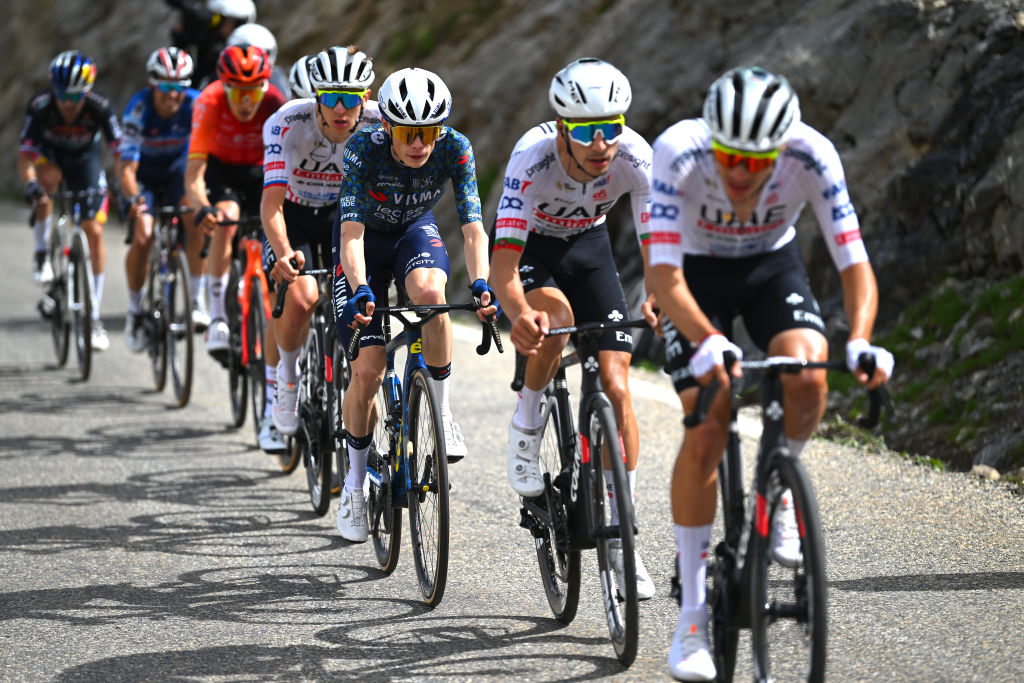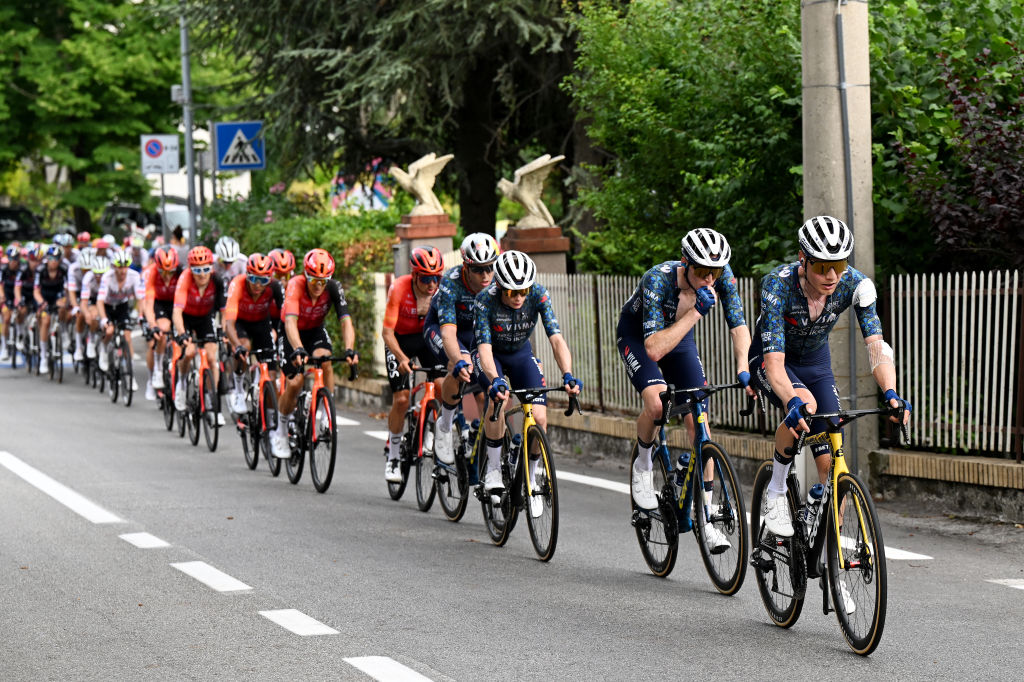Tour de France analysis – On the Galibier, UAE Team Emirates brought cycling into the era of the 'hors catégorie team'
Rival squads must now find ways to counter Tadej Pogačar's star-filled support squad, which looked near-unstoppable on stage 4

In cycling, the strongest team or rider on paper isn't always the strongest on the road, as a myriad of outside factors – including rivals, the course, tactics or lack thereof, the weather, and illness – can conspire to falter even the most powerful-seeming lineups on any given race day.
On stage 4 of the Tour de France, raced over the high-mountain passes at Sestrières, Col de Montgenèvre and the Col du Galibier, no such obstacles impeded the progress of the star-packed UAE Team Emirates, however.
The team, at a reasonable guesstimate the most expensively assembled in cycling history, were nigh-on unstoppable as the slopes of the Col de Lauteret turned into the Galibier on Tuesday afternoon.
First, it was the Classics stars, Tim Wellens and Nils Politt, who took the reins. The pair laid the groundwork, to be continued by the half dozen teammates who could earnestly claim a leadership slot at many of the other 21 teams in the Tour de France peloton.
Before long, after Pavel Sivakov and Marc Soler - both with Grand Tour top 10s on their palmarès – had pulled off the front of a peloton constantly dwindling in numbers, the break of the day had been reeled in and major names including Simon Yates, Enric Mas and race leader Richard Carapaz had all been dropped.
But at UAE, a 'team of leaders' – in Adam Yates, João Almeida, and Juan Ayuso a trio of Grand Tour contenders in their own right – remained, sloughing more star names off the lead group, Jonas Vingegaard's final teammate Matteo Jorgenson among them.
Last year, it was the Dane's Visma-Lease a Bike team, then enjoying the services of Primož Roglič and fully fit versions of Sepp Kuss, Wout van Aert and Wilco Kelderman, who looked to be the unstoppable Grand Tour racing force.

Now, largely thanks to forces out of their control, they look a shadow of the team which achieved the unprecedented in May, July and September. A Vingegaard with an optimal Tour de France lead-in may have fared better racing across and down the Galibier on stage 4, while Van Aert in full flying super-domestique form would surely have been present on the Lautaret.
But, come the climb, in the time between Wellens and Yates finishing their spells on the front, the collective might of Bart Lemmen, Tiesj Benoot, and Jorgenson had dropped away, leaving Vingegaard alone to reckon with his great rival and a pair of teammates in Ayuso and Almeida.
Shorn of all context – such as the weather, the length of stage, or the race situation – Pogačar's team-assisted ascent of the 8.5km from the Lautaret to the summit of the Galibier stood as the quickest on record, at 20:48 it lies 95 seconds quicker than Nairo Quintana's five years ago.
This was achieved in the face of a headwind blowing for much of the ascent, too, all the way down the northwest-facing road from Briançon up the Lautaret. Nature's efforts scarcely put a dent in the combined efforts of the UAE Team Emirates roster, so it wasn't particularly shocking that no other team – barring Remco Evenepoel's Soudal-QuickStep – could offer up more than a single rider in resistance by the time Pogačar dropped the hammer.
The challenge for their rivals now, at least if this opening mountain salvo is an accurate omen for the remainder of the Tour, will be figuring out how to counter the team's awesome strength in depth. There'll be a rewriting of tactics, mooted forming of alliances, and hope – hope that riders find form on the road, and hope that Pogačar tires as he nears the conclusion of his historic Giro-Tour double bid.
In the long run, however, overwhelming displays of force such as this will continue to pose larger questions of professional cycling. Around the sporting world, the concentration of high-end talent at the few strongest-slash-richest teams is already well entrenched.
Will cycling end up treading the same path, with a handful of Tour teams boasting half a team of Grand Tour contenders supporting a sole superstar, leaving the remainder of the peloton resembling Agritubel or TotalEnergies?
Forget the 'super team', on 2024 Tour's first hors catégorie climb, cycling's new hegemons, UAE Team Emirates, have shown that cycling is now in the era of the 'hors catégorie team'.
Get unlimited access to all of our coverage of the Tour de France - including breaking news and analysis reported by our journalists on the ground from every stage of the race as it happens and more. Find out more.
Dani Ostanek is Senior News Writer at Cyclingnews, having joined in 2017 as a freelance contributor and later being hired full-time. Before joining the team, she had written for numerous major publications in the cycling world, including CyclingWeekly and Rouleur. She writes and edits at Cyclingnews as well as running newsletter, social media, and how to watch campaigns.
Dani has reported from the world's top races, including the Tour de France, Road World Championships, and the spring Classics. She has interviewed many of the sport's biggest stars, including Mathieu van der Poel, Demi Vollering, and Remco Evenepoel, and her favourite races are the Giro d'Italia, Strade Bianche and Paris-Roubaix.
Season highlights from 2024 include reporting from Paris-Roubaix – 'Unless I'm in an ambulance, I'm finishing this race' – Cyrus Monk, the last man home at Paris-Roubaix – and the Tour de France – 'Disbelief', gratitude, and family – Mark Cavendish celebrates a record-breaking Tour de France sprint win.